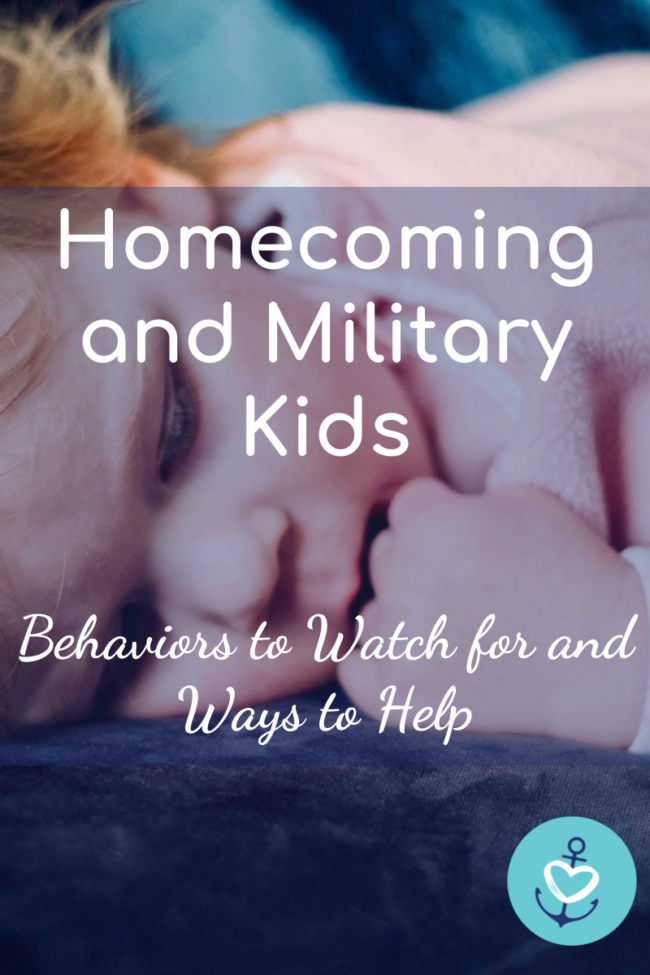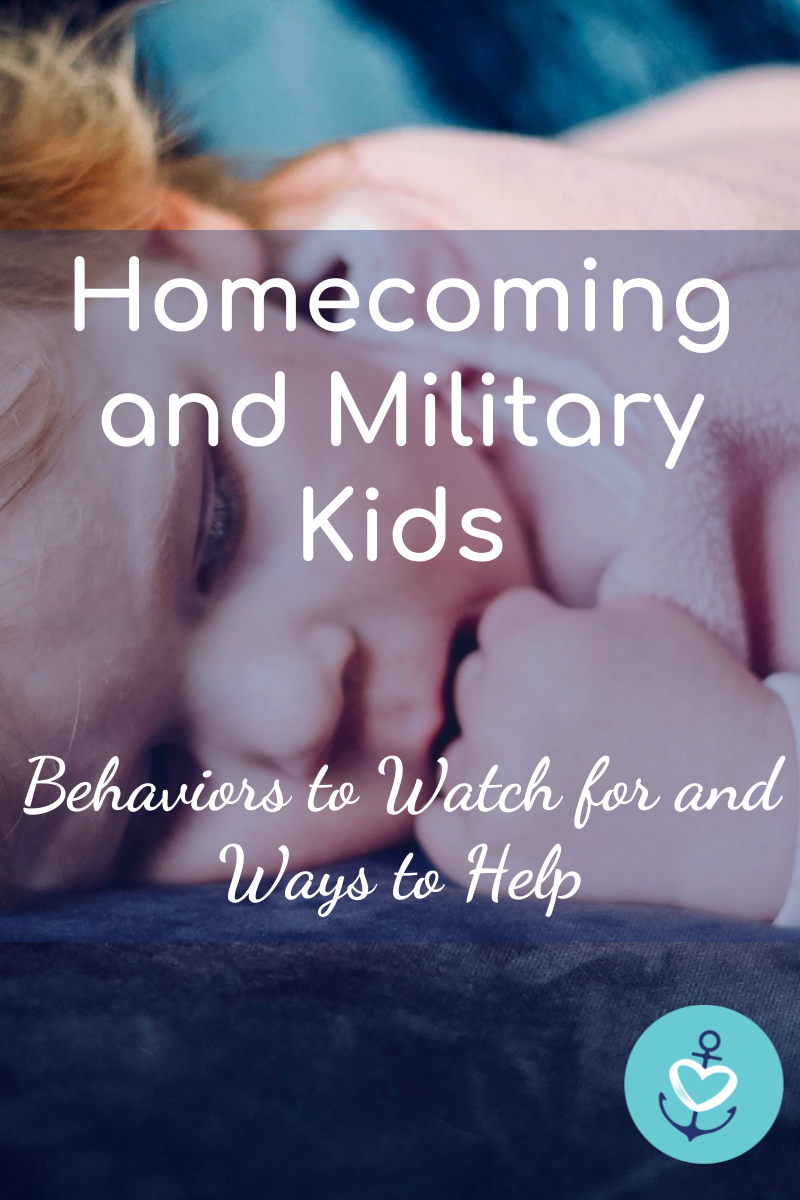Military kids come from all places, families and branches. They are infants all the way to teenagers. Some have been MILKIDs their entire lives and others are thrown into it later in their young lives.
But one thing is for sure about these kiddos: they did not choose this life. In spite of what they think or feel, many times military life throws them curve balls that they learn quickly to navigate. That is where we come in. From PCSing to deployments, we as the MILSOS take responsibility to teach, guide and navigate the negatives of this life right along side them. They are watching us and counting on us to help them know how to deal with the hard, and sucky, parts of military life.
But what about the more happy times? What about the times when we think everyone should be happy! Homecomings for instance are suppose to be the happiest times! They are suppose to end the suck of deployment and peace abounds once again in the home…..right???

As with adults reintegrating back from deployment, military kids have feelings and struggles to work through as well. So here is a little breakdown of what you may expect from your MILKIDS in regards to reintegration when your SO returns from deployment.
Just FYI, be sure to snag the free printable at the end of this for easy reference for you and your SO!
Behaviors for Ages 0-3:
- Cries, fusses (for toddler, it may seem to be without a cause)
- Clings to the most familiar caregiver
- Acts indifferent towards the returning parent
- Attention seeking behavior
- Regresses/changes in development (toilet accidents, baby talk, night waking, etc.)
- Separation anxiety
How to Help:
- Maintain care through physical touch (feeding, rocking, holding, etc)
- Have service member slowly get involved in child’s day-to-day care.
- Play games and engage in play with the toddler at his or her level
- Speak in a gentle or soft voice
- Be patient with negative behaviors while still maintaining standards
- Continue routine established during deployment
- Allow toddlers time to feel comfortable and do not force physical interactions.
Behaviors for Preschool Age:
- Feels angry or mad at BOTH parents
- Reverts back to babyish behavior to seek attention from parent
- Acts out or refuses requests
- Acts demanding or whines
- Questions why the serving parent left in the first place
- Shows separation anxiety to parent when they return.
- Fears the returning parent will leave again
How to Help:
- Allow your child to share his feelings without judgement
- Give your child the space and personal time to share new things, thoughts and feelings with you.
- Model appropriate behavior for those negative emotions
- Help the child plan fun activities for when the parent returns home.
Behaviors for Elementary Age:
- May feel angry or mad at BOTH parents about the deployment/separation
- Acts out or refuses requests
- Acts demanding or whines
- Questions why the serving parent left in the first place
- Shows separation anxiety to parent when they return.
- Fears the returning parent will leave again
How to Help:
- Encourage your child for accomplishments during separation
- Model appropriate behavior for negative emotions.
- Give your child time and attention to share new things with you (school projects, toys, pictures, etc.)
- Stay positive and focus on current positive behavior
- Attend available activities/events in your child’s current life.
Behaviors for Teenagers:
- May show defiant behaviors towards house rules
- Feels angry, mad or resentful towards returning parent
- Show anxiety about relationship with deployed parent
- Acts distant or acts like they don’t care
How to Help:
- Avoid criticism
- Allow your child privacy when needed
- Give your child time and attention to share new things with you (school projects, crushes/dates, etc.)
- Stay positive and focus on current positive behavior
- Attend available activities/events in your child’s current life.
- Offer undivided attention when child attempts to reconnect with service member
Sometimes All It Takes Is A Listening Ear
As I said before, we as MILSOS need to take responsibility to teach, guide and navigate the negatives of this life right along side those wonderful MILKIDS. Providing a listening ear, some space and grace might just help. Isn’t that we all want?
Grab the handout below so you can reference this over and over as you child gets older!


